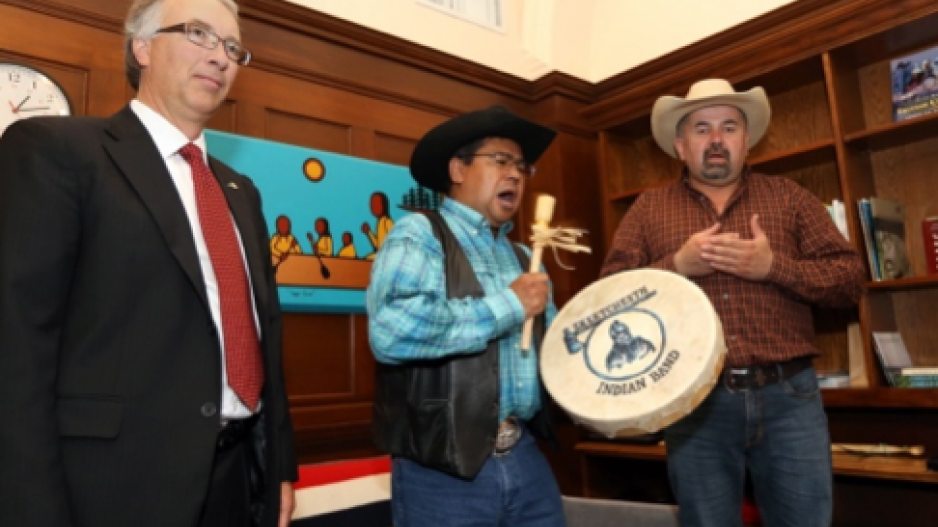The provincial government took steps October 23 to smooth over relations with the Tsilhqot’in First Nation, which hold the keys to a number of economic development projects in the Williams Lake region, with a formal apology over the execution of six war chiefs in the 1860s.
"Today marks a significant step toward reconciliation with the Tsilhqot'in Nation, and to a relationship of respect and recognition,” Premier Christy Clark said in the Legislative Assembly October 23.
“Our government stood with members from all sides to apologize for wrongful acts, and commit ourselves to redressing them so that we can build a better future together."
It was the second apology on the part of the colonial government.
In 1993, the B.C. government struck the Cariboo-Chilcotin Justice Inquiry and issued an apology, but never exonerated the six chiefs that had been hanged of wrongdoing – a significant distinction in the minds of the Tsilhqot’in, said Chief Joe Alphonse.
“It might seem like a small thing, but to the Tsilhqot’in people it’s always been about that – it is huge for us,” Alphonse told Business in Vancouver.
In 1864 and 1865, the colonial government hanged six war chiefs who had led their people in a war against settlers who were trying to build a road through Tsilhqot’in territory.
The Tsilhqot’in originally cooperated with the road builders, but relations broke down when they complained they were not being properly compensated.
According to the Tsilhqot’in, when a road builder said they would be deliberately infected with smallpox – something that had already killed many First Nations – they declared war, and killed most of the road crew.
The colonial government responded by sending in the militia, which were unsuccessful in engaging the Tsilhqot’in. When the Tsilhqot’in offered to enter peace talks, five unarmed chiefs were arrested and later hanged. Another was later hanged in 1865.
David Rosenberg, the lawyer who represented the Tsilhqot’in in a landmark Supreme Court case, said the apology is part of a process of reconciliation.
“What I see happening here is the government coming to terms with the fact that the Tsilhqot’in have a certain ownership and jurisdiction of their own territory and this is another way to move beyond the adversarial process that has occurred up until now.”
The history between the Tsilhqot’in and B.C. government has contributed to sometimes bitter relations and has sometimes gotten in the way of economic development and mining exploration.
“We’ve blocked exploration opportunities for a lot of companies, and I think now we have this (pology) established, we have recognition and we don’t have a problem with exploration,” Alphonse said. “But when exploration happens in our territory, there has to be a benefit to our nation.
“We’ve always been 100% dependent on government funding. That’s an embarrassing situation to be in. We want to work with industry and work with companies that are willing to recognize who we are, and those resources have to facilitate our own independence.”
Earlier this year, in a landmark decision, the Supreme Court of Canada formally affirmed that the Tsilhqot’in never ceded title to their land and have proven collective title to 2% of their traditional claimed territory.
Although Alphonse signaled the apology will go some way to improve relations between his people and the B.C. government, relations between the Tsilhqot’in and
Taseko Mines Ltd. (TSX:TKO) remain strained.
The Tsilhqot’in are adamantly opposed to Taseko’s New Prosperity mine.
Two weeks ago, the Tsilhqot’in declared a new tribal park and declared Fish Lake, where the mine would be built, to be a sacred site.
@nbennett_biv



